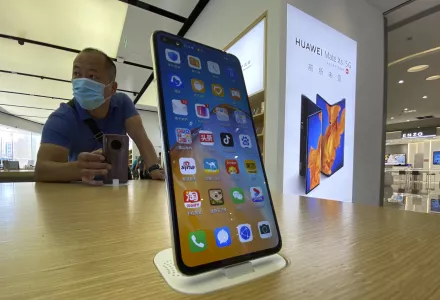
From trade disputes to digital governance to multilateral institutions in need of reform, the incoming Biden Administration faces a full international economics policy agenda. Rising U.S.-China tensions will exacerbate these policy challenges as the world’s two largest economies compete for economic power and global influence. This fall, the Belfer Center’s Economic Diplomacy Initiative, led by Aditi Kumar, Nicholas Burns, and Lawrence H. Summers, hosted a series of discussions examining the U.S.-China economic relationship.
To foster mutual understanding between U.S. and Chinese policy thinkers, Kumar welcomed Distinguished Professor and Dean of Tsinghua University’s Institute of International Relations, Yan Xuetong (阎学通), for a conversation on the digital dimension of strategic competition between the two countries. Yan drew a distinction between the U.S.-Soviet rivalry during the Cold War, driven by conflicting ideologies, and the current U.S.-China rivalry driven by the competition for digital superiority. He argued that “ideological and geopolitical identities, such as ‘the West’, ‘the East’, ‘the South’, and ‘the North’ will vanish, while digital and cyber identities, such as ‘digitalized’ and ‘under-connected’, will become popular.”
Yan suggested that national security is no longer defined by troops, military bases, and naval forces, but rather by cyber protection. Countries will therefore make political judgments according to their digital means rather than ideological relations. “Most countries will adopt hedging strategies between the United States and China...‘selective’ will become the common characteristic of foreign strategies, such as decoupling, hedging, engaging, and partnering strategies.”
Additional events in this series included conversations with: Chief Information Security Officer of TikTok Roland Cloutier on data privacy and security; Henry Farrell and Abe Newman on their seminal paper on “weaponized interdependence” and the prospect of supply chain decoupling; and trade experts Wendy Cutler, Kelly Ann Shaw, and Robert Lawrence on trade priorities for the next Administration.
“Collectively, the seminars highlighted the various dimensions of economic competition between the United State and China,” Kumar said. “They also illustrated how rapid technological innovation and leadership in setting global standards and regulations for a digitized economy will be integral to U.S. national security and influence in the Indo-Pacific region and across the globe.”
Click here to return to Belfer Center Newsletter
"U.S.-China Bipolar Rivalry in the Digital Age." Belfer Center Newsletter, Belfer Center's for Science and International Affairs, Harvard Kennedy School. (Fall 2020)


